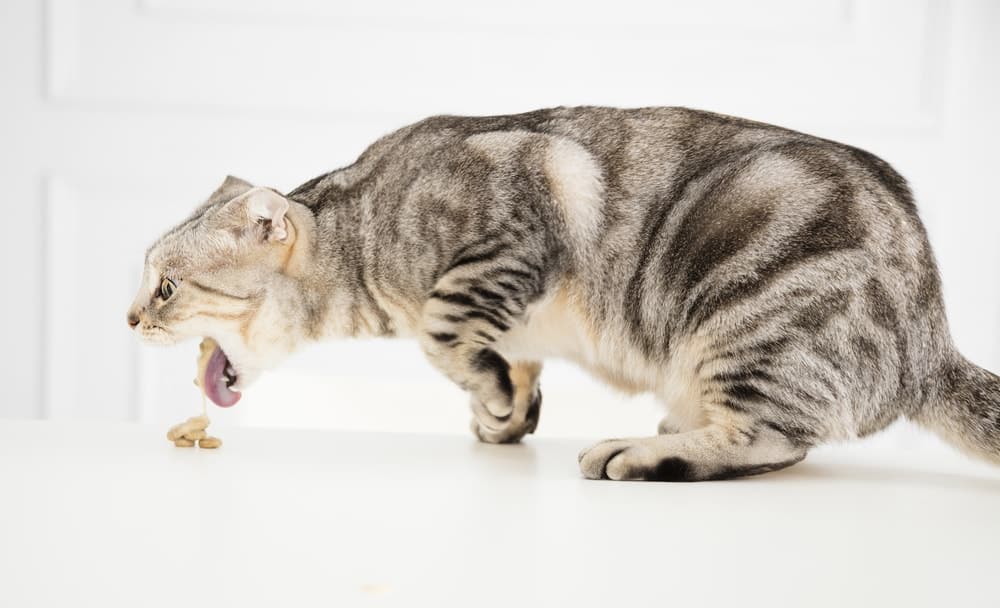Beans are a beloved food worldwide, known for their protein content and delicious taste. While black beans, soybeans, and pinto beans are the most popular, lima (or butter) beans have their own following. But what about our feline friends? Can cats safely eat lima beans? Let’s find out.
Health Benefits of Lima Beans for Cats
Unfortunately, there aren’t any significant health benefits to feeding lima beans to your cat. Despite their protein content, lima beans don’t provide the necessary nutrients that cats need. Remember, cats are obligate carnivores, meaning they have specific dietary requirements that only meat can fulfill.
While lima beans contain protein, it’s not easily digestible for cats. Their bodies are designed to extract most of their essential nutrients from meat. Therefore, lima beans won’t offer any substantial nutritional value to your feline companion.
Image Credit: Lotus Images, Shutterstock
Drawbacks of Feeding Lima Beans to Cats
Feeding your cat too many lima beans can cause gastrointestinal upset. Their bodies may struggle to process these legumes, resulting in discomfort and digestive issues. Moreover, if your cat fills up on lima beans, they may not consume more nutritious foods, potentially leading to nutritional deficiencies over time.
It’s important to consider the balance of your cat’s diet. While they may enjoy the occasional lima bean as a treat, it’s best to prioritize their main source of nutrition, which should be a high-quality meat-based diet.
Important Things to Know About Lima Beans
While cooked lima beans are generally safe for cats to grab off your plate, raw and uncooked lima beans are toxic for both humans and cats. Uncooked lima beans contain a compound called linamarin, which can turn into cyanide when consumed by humans. Although no studies exist on the toxicity of raw lima beans for cats, it’s best to err on the side of caution.
If your cat accidentally consumes raw lima beans, they may experience gastrointestinal upset. In rare cases, cyanide poisoning could occur, displaying symptoms like restlessness, rapid breathing, and drooling. If you suspect your cat has consumed raw lima beans and is unwell, it’s essential to seek veterinary care immediately.
When cooking lima beans, ensure they are plain and free from seasonings. Some seasonings, such as onion and garlic, are toxic to cats, while others may cause stomach upset. It’s always better to be safe and avoid any potentially harmful ingredients.
Frequently Asked Questions
Q: Can cats eat other types of beans?
A: Cats are obligate carnivores and require a meat-based diet. While small amounts of cooked beans may be safe, they shouldn’t be a significant part of their diet.
Q: How should I introduce new foods to my cat’s diet?
A: It’s important to introduce new foods gradually and monitor your cat for any adverse reactions. Consult with your veterinarian for specific dietary recommendations.
Q: Are there any vegetables that are safe for cats to eat?
A: Some vegetables, such as cooked carrots or peas, can be safe for cats in small amounts. However, it’s crucial to consult with your veterinarian before adding any new foods to your cat’s diet.
Conclusion
In conclusion, while the occasional lima bean won’t harm your cat, there are no significant health benefits to feeding them lima beans. Remember, cats have dietary requirements that can only be fulfilled by meat. It’s best to prioritize their nutritional needs and ensure they have a balanced, high-quality diet.
Cooked lima beans, in small quantities, are generally safe for cats, but it’s crucial to avoid raw and uncooked beans. Additionally, always serve plain lima beans without any seasonings to prevent potential toxicity.
For more informative content and guidance on pet care, visit Pawsoha.
